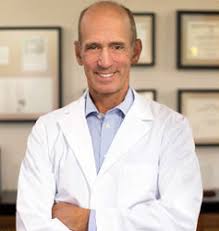
Breaking News
 Nationwide Tax Competition Heats Up as Missouri Governor Calls for Zero Income Tax
Nationwide Tax Competition Heats Up as Missouri Governor Calls for Zero Income Tax
 Matthew McConaughey Trademarks Himself to Fight AI Misuse
Matthew McConaughey Trademarks Himself to Fight AI Misuse
 More Americans are surviving cancer - even the deadliest ones
More Americans are surviving cancer - even the deadliest ones
 Former CEO of Venezuelan Oil Company CITGO Held Hostage by Nicolas Maduro for Five Years...
Former CEO of Venezuelan Oil Company CITGO Held Hostage by Nicolas Maduro for Five Years...
Top Tech News
 Superheat Unveils the H1: A Revolutionary Bitcoin-Mining Water Heater at CES 2026
Superheat Unveils the H1: A Revolutionary Bitcoin-Mining Water Heater at CES 2026
 World's most powerful hypergravity machine is 1,900X stronger than Earth
World's most powerful hypergravity machine is 1,900X stronger than Earth
 New battery idea gets lots of power out of unusual sulfur chemistry
New battery idea gets lots of power out of unusual sulfur chemistry
 Anti-Aging Drug Regrows Knee Cartilage in Major Breakthrough That Could End Knee Replacements
Anti-Aging Drug Regrows Knee Cartilage in Major Breakthrough That Could End Knee Replacements
 Scientists say recent advances in Quantum Entanglement...
Scientists say recent advances in Quantum Entanglement...
 Solid-State Batteries Are In 'Trailblazer' Mode. What's Holding Them Up?
Solid-State Batteries Are In 'Trailblazer' Mode. What's Holding Them Up?
 US Farmers Began Using Chemical Fertilizer After WW2. Comfrey Is a Natural Super Fertilizer
US Farmers Began Using Chemical Fertilizer After WW2. Comfrey Is a Natural Super Fertilizer
 Kawasaki's four-legged robot-horse vehicle is going into production
Kawasaki's four-legged robot-horse vehicle is going into production
 The First Production All-Solid-State Battery Is Here, And It Promises 5-Minute Charging
The First Production All-Solid-State Battery Is Here, And It Promises 5-Minute Charging
Why Your Doctor is Wrong About Cholesterol

Cholesterol is a waxy substance found in nearly every cell of your body and is essential to good health. It plays a role in hormone production, digestion and the manufacture of vitamin D following sun exposure, and helps protect your cell membranes.
As noted by Zoe Harcombe, Ph.D.,1 "It is virtually impossible to explain how vital cholesterol is to the human body. If you had no cholesterol in your body you would be dead."
Your liver manufactures most, about 80 percent, of the cholesterol your body requires, which in and of itself suggests your body cannot survive without it. The remaining 20 percent comes from your diet. However, dietary cholesterol is absorbed at a rate of 20 to 60 percent, depending on the individual,2and if you consume less, your body will compensate by making more and vice versa.
Animals use cholesterol in much the same way, hence beef, pork and chicken have similar levels of cholesterol, averaging 25 milligrams of cholesterol per ounce.3
Cholesterol has long been vilified as a primary cause of cardiovascular disease (CVD), yet numerous studies refute this hypothesis, demonstrating that cholesterol has virtually nothing to do with heart disease — at least not in the way conventional medicine presents it.
As noted by Harcombe, the notion that there is good and bad cholesterol is also wrong. Low-density lipoprotein (LDL) and high-density lipoprotein (HDL) are not actually cholesterol; they're carriers and transporters of cholesterol, triglycerides (fat), phospholipids and proteins.
"LDL would more accurately be called the carrier of fresh cholesterol and HDL would more accurately be called the carrier of recycled cholesterol," she says.4 What's more, dietary cholesterol has no impact on the cholesterol level in your blood, so how could dietary cholesterol pose a health risk?
Does High Cholesterol Cause Cardiovascular Disease?

 Storage doesn't get much cheaper than this
Storage doesn't get much cheaper than this

